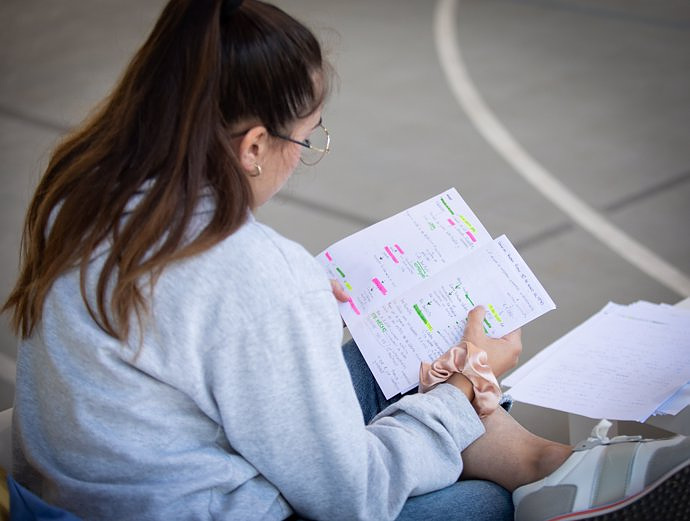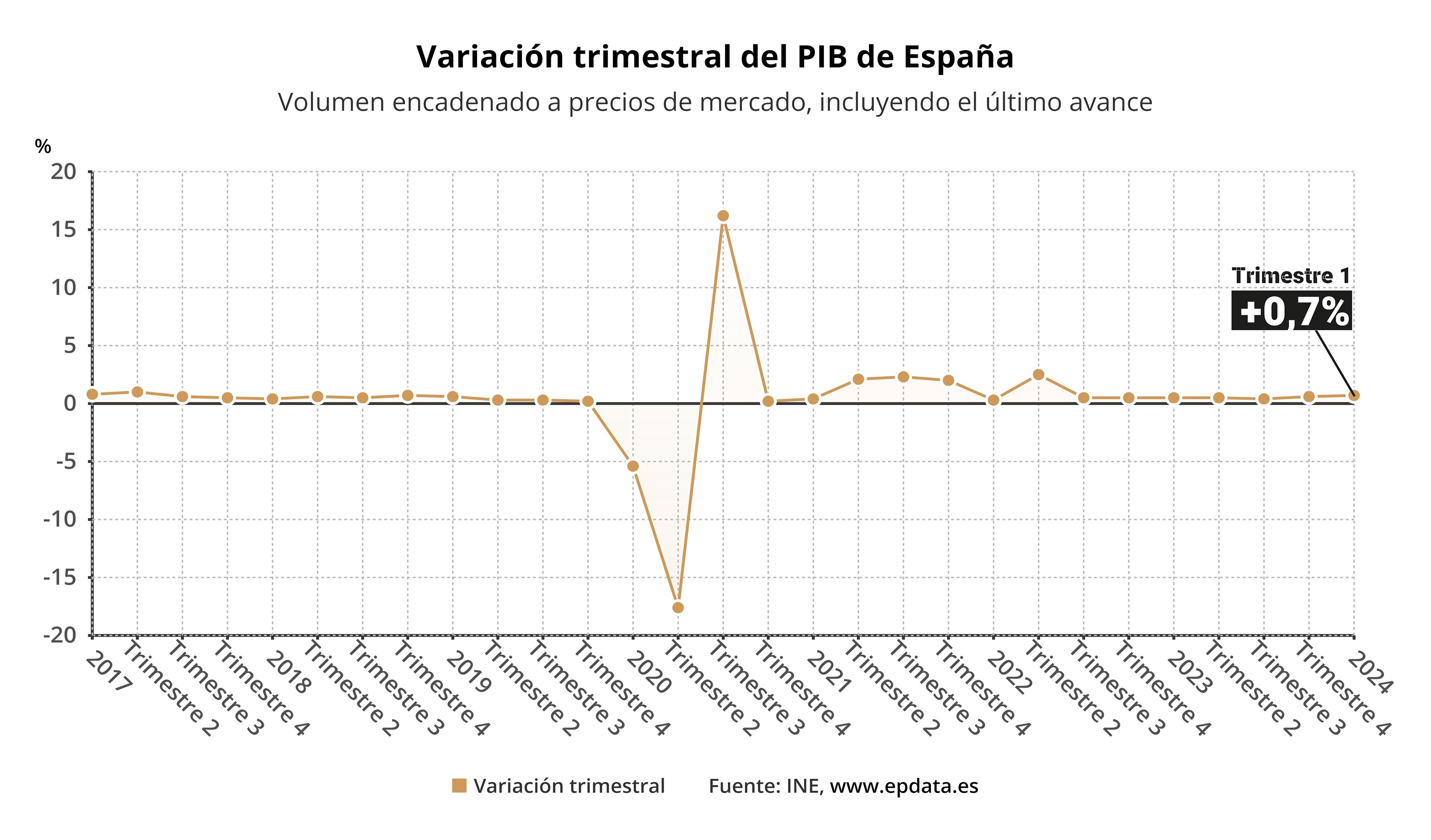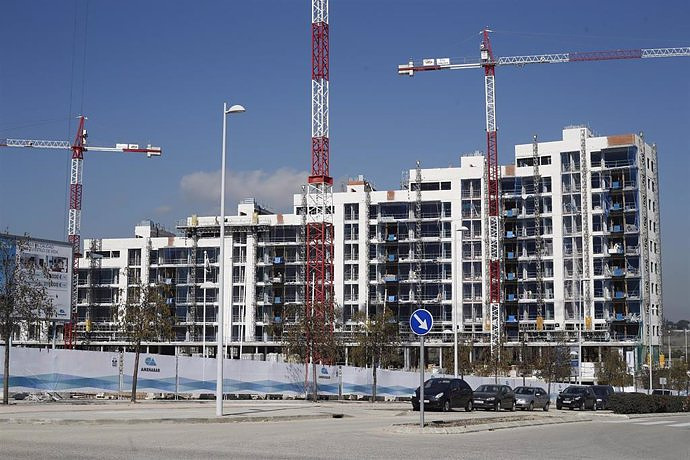The amount allocated to the scholarships will be the same as the previous year, 2,500 million euros, due to the extension of the 2024 PGE
This Tuesday, the Council of Ministers approved the royal decree that establishes the thresholds for income and family assets and the amounts of scholarships and study aid for the 2024-2025 academic year, which includes for the first time minor victims of abuse. sexual and reduces the degree of disability.
"It is a very important measure for hundreds of thousands of families in Spain that clearly moves towards equal opportunities, especially thinking about our young people and, above all, preventing young students from having to abandon their training and studies due to socioeconomic conditions," said the Minister of Education, Vocational Training and Sports, Pilar Alegría, during the press conference after the Council of Ministers.
On the recommendation of the Council of State, the decree, reported by Europa Press, includes for the first time extending the cases of flexibility in the academic requirements applicable to victims of gender violence to minor victims of sexual violence.
In this sense, the decree states that the requirements will not apply to women who prove they are victims of gender violence, their sons and daughters under 25 years of age, and minors subject to their guardianship or guardianship. established in relation to the teaching load exceeded in the 2023-2024 academic year, nor the limit on the number of years with the status of scholarship beneficiary, nor the requirement to exceed a certain percentage of credits, subjects, modules or their equivalent in hours in the 2024-2025 academic year for which they have been beneficiaries of the scholarship. These peculiarities will also apply to minors who prove they are victims of sexual violence.
Likewise, next year the degree of disability required to access aid for students with a specific need for educational support will be reduced from 33% to 25% in the call for scholarships for the 2024-2025 academic year.
The call for scholarships once again includes a complementary aid of 400 euros aimed at people who have a specific need to receive educational support derived from the following situations: Disability; severe behavioral or communication and language disorder; autism spectrum disorder; or high capacities. It also maintains the increase in the residency scholarship (from 1,600 to 2,500 euros) introduced last year.
"The aid of 400 euros is universal aid for all those students who have special educational needs. We take another step in the right direction to continue working towards equal opportunities," Alegría pointed out.
The royal decree that establishes the thresholds of income and family assets and the amounts of scholarships and study aid for the 2024-2025 academic year, establishes for students with specific educational support needs associated with disability, and for reasons of legal certainty, a minimum degree of 25% to access aid.
This percentage represents at least a moderate disability, associated with the need for significant and stable support. In previous courses, it has been directly the annual calls that have established the way of accrediting the specific need for support associated with disability, which was set at 33% since the 2020/2021 academic year.
"A boy or girl with special educational needs to receive this scholarship had to establish or guarantee a 33% disability and, at this time, we have reduced that requirement to 25% so that those young people with moderate disabilities can also receive this help "said the person in charge of Education.
Another novelty included this year in the scholarship decree, aimed at university and non-university studies, is that expenses derived from renting the habitual residence are added to the exclusions in the calculation of property income.
UPDATE OF FAMILY INCOME THRESHOLDS
It also updates the family income thresholds in the call for general scholarships and in the call for aid for students with specific educational support needs, which are increased by 5%, in order to "respond to nominal increases in income of families, particularly those associated with the interprofessional minimum wage and the cost of living since the last updates".
"This is done, above all, to keep pace with the rise in the CPI or salary income and, therefore, more families, more children of workers, can access these scholarships," Alegría stressed.
The Government justifies that the margin to introduce certain improvements this year is conditioned by a supposed scenario of budget extension, since the calendar in which the calls must be published "cannot wait" for the approval of the future General State Budgets of the year 2024.
That is, the budget with which it is provided is the same as that of 2023. Thus, the estimated cost of the call will be 2,535 million euros, which are attributed to the budget years of 2024 and 2025.
"We are talking about 2,535 million euros so that more than one million young people in our country can enjoy this scholarship and, therefore, can continue training," stressed the minister and Government spokesperson.
In the general call for post-compulsory studies (Baccalaureate, FP, Language, Artistic, Sports and University Education), which will be published in March, the Government expects that there will be some 744,000 beneficiaries (last year there were 429,494 non-university students and 305,570 university students).
For its part, in the call for aid and subsidies for students with special educational support needs (ANEAE), intended for students with disabilities; with severe communication and language disorder; students with autism spectrum disorder (ASD); and students with high abilities, which will be published in the month of May, foresees that there will be around 249,000 beneficiaries.

 Exploring Cardano: Inner Workings and Advantages of this Cryptocurrency
Exploring Cardano: Inner Workings and Advantages of this Cryptocurrency Seville.- Economy.- Innova.- STSA inaugurates its new painting and sealing hangar in San Pablo, for 18 million
Seville.- Economy.- Innova.- STSA inaugurates its new painting and sealing hangar in San Pablo, for 18 million Innova.- More than 300 volunteers join the Andalucía Compromiso Digital network in one month to facilitate access to ICT
Innova.- More than 300 volunteers join the Andalucía Compromiso Digital network in one month to facilitate access to ICT Innova.-AMP.- Ayesa acquires 51% of Sadiel, which will create new technological engineering products and expand markets
Innova.-AMP.- Ayesa acquires 51% of Sadiel, which will create new technological engineering products and expand markets The former president of Uruguay José Mujica announces that he suffers from a tumor in the esophagus
The former president of Uruguay José Mujica announces that he suffers from a tumor in the esophagus The PSOE leadership relieved by Sánchez's continuity: "Thank you president"
The PSOE leadership relieved by Sánchez's continuity: "Thank you president" Large banks obtain 6.6 billion euros in profits in the first quarter, 17.2% more
Large banks obtain 6.6 billion euros in profits in the first quarter, 17.2% more The Ibex 35 lost 0.5% at the opening, but maintained 11,000 points, with CaixaBank as the 'red lantern'
The Ibex 35 lost 0.5% at the opening, but maintained 11,000 points, with CaixaBank as the 'red lantern' How Blockchain in being used to shape the future
How Blockchain in being used to shape the future Not just BTC and ETH: Here Are Some More Interesting Coins Worth Focusing on
Not just BTC and ETH: Here Are Some More Interesting Coins Worth Focusing on They create a bank of machinery sounds to prevent breakdowns through artificial intelligence
They create a bank of machinery sounds to prevent breakdowns through artificial intelligence UPV students build a prototype of a wooden house to move to Equatorial Guinea
UPV students build a prototype of a wooden house to move to Equatorial Guinea The UA opens the call for the Impulso 2024 Awards for the best innovative business initiatives
The UA opens the call for the Impulso 2024 Awards for the best innovative business initiatives ALI, virtual assistant from Alicante, internationally recognized by the OECD
ALI, virtual assistant from Alicante, internationally recognized by the OECD A million people demonstrate in France against Macron's pension reform
A million people demonstrate in France against Macron's pension reform Russia launches several missiles against "critical infrastructure" in the city of Zaporizhia
Russia launches several missiles against "critical infrastructure" in the city of Zaporizhia A "procession" remembers the dead of the Calabria shipwreck as bodies continue to wash up on the shore
A "procession" remembers the dead of the Calabria shipwreck as bodies continue to wash up on the shore Prison sentences handed down for three prominent Hong Kong pro-democracy activists
Prison sentences handed down for three prominent Hong Kong pro-democracy activists ETH continues to leave trading platforms, Ethereum balance on exchanges lowest in 3 years
ETH continues to leave trading platforms, Ethereum balance on exchanges lowest in 3 years Investors invest $450 million in Consensys, Ethereum incubator now valued at $7 billion
Investors invest $450 million in Consensys, Ethereum incubator now valued at $7 billion Alchemy Integrates Ethereum L2 Product Starknet to Enhance Web3 Scalability at a Price 100x Lower Than L1 Fees
Alchemy Integrates Ethereum L2 Product Starknet to Enhance Web3 Scalability at a Price 100x Lower Than L1 Fees Mining Report: Bitcoin's Electricity Consumption Declines by 25% in Q1 2022
Mining Report: Bitcoin's Electricity Consumption Declines by 25% in Q1 2022 Oil-to-Bitcoin Mining Firm Crusoe Energy Systems Raised $505 Million
Oil-to-Bitcoin Mining Firm Crusoe Energy Systems Raised $505 Million Microbt reveals the latest Bitcoin mining rigs -- Machines produce up to 126 TH/s with custom 5nm chip design
Microbt reveals the latest Bitcoin mining rigs -- Machines produce up to 126 TH/s with custom 5nm chip design Bitcoin's Mining Difficulty Hits a Lifetime High, With More Than 90% of BTC Supply Issued
Bitcoin's Mining Difficulty Hits a Lifetime High, With More Than 90% of BTC Supply Issued The Biggest Movers are Near, EOS, and RUNE during Friday's Selloff
The Biggest Movers are Near, EOS, and RUNE during Friday's Selloff Global Markets Spooked by a Hawkish Fed and Covid, Stocks and Crypto Gain After Musk Buys Twitter
Global Markets Spooked by a Hawkish Fed and Covid, Stocks and Crypto Gain After Musk Buys Twitter Bitso to offset carbon emissions from the Trading Platform's ERC20, ETH, and BTC Transactions
Bitso to offset carbon emissions from the Trading Platform's ERC20, ETH, and BTC Transactions Draftkings Announces 2022 College Hoops NFT Selection for March Madness
Draftkings Announces 2022 College Hoops NFT Selection for March Madness























